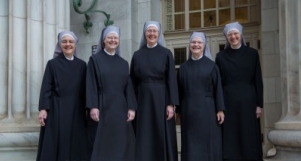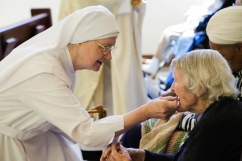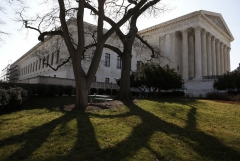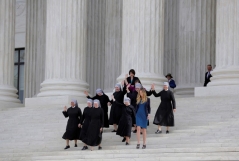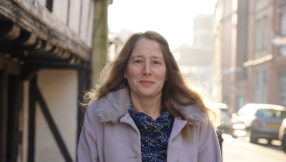The U.S. government has a lot of other venues to provide contraceptives and other forms of birth control to its citizens, so it should not force religious groups to do so.
Lawyers of the nuns from the Little Sisters of the Poor, an order who care for the elderly, presented this main argument last week before the Supreme Court, which appears to be divided in a case that threatens to impose monetary penalties to religious groups that will insist on standing up for their faith and refuse to distribute contraceptives or allow a third party to do so.
At a press conference in front of the Supreme Court building in Washington D.C. on Wednesday, Mark Rienzi, lead attorney for the Little Sisters of the Poor, maintained that the nuns have the support of other religious organisations in their fight for their faith.
"We heard the justices of the Supreme Court comment on the fact that members of many minority religions across the country have stood with the Little Sisters of the Poor, asking the government to do the very simple and right thing here, which is just if the government wants to provide these [contraceptive] services, the government is free to provide them," Rienzi said, as quoted by The Catholic News Agency.
He added that the U.S. government can very well implement its birth control programme even while respecting the rights of religious groups like the Little Sisters of the Poor to practice their faith.
"In every other court case where the government has come before this court and talked about its [health] exchanges, it has told the Court that they are wonderful, they are cheap, they are easy to use, they are affordable, they are great. And all the Little Sisters are asking today is that the government uses all its other programmes to provide the services it wants," the lawyer said.
Justice Sonia Sotomayor, however, seemed unconvinced, saying that if all religious exemptions from laws were to be honoured, the government will not be able to implement its programmes.
"Because every believer that's ever come before us, including the people in the military, are saying that 'my soul will be damned in some way'," Sotomayor said, discussing requests for religious exemptions from laws and actions.
"How will we ever have a government that functions?" she added.
Sister Constance Veit, a member of the order, meanwhile said the group is now fearful of the possibility of having to pay a huge fine just for standing up to their faith.
"The fines that we face add up to about $70 million a year across our 27 U.S. homes, so it's pretty frightening," Veit told Fox News.










